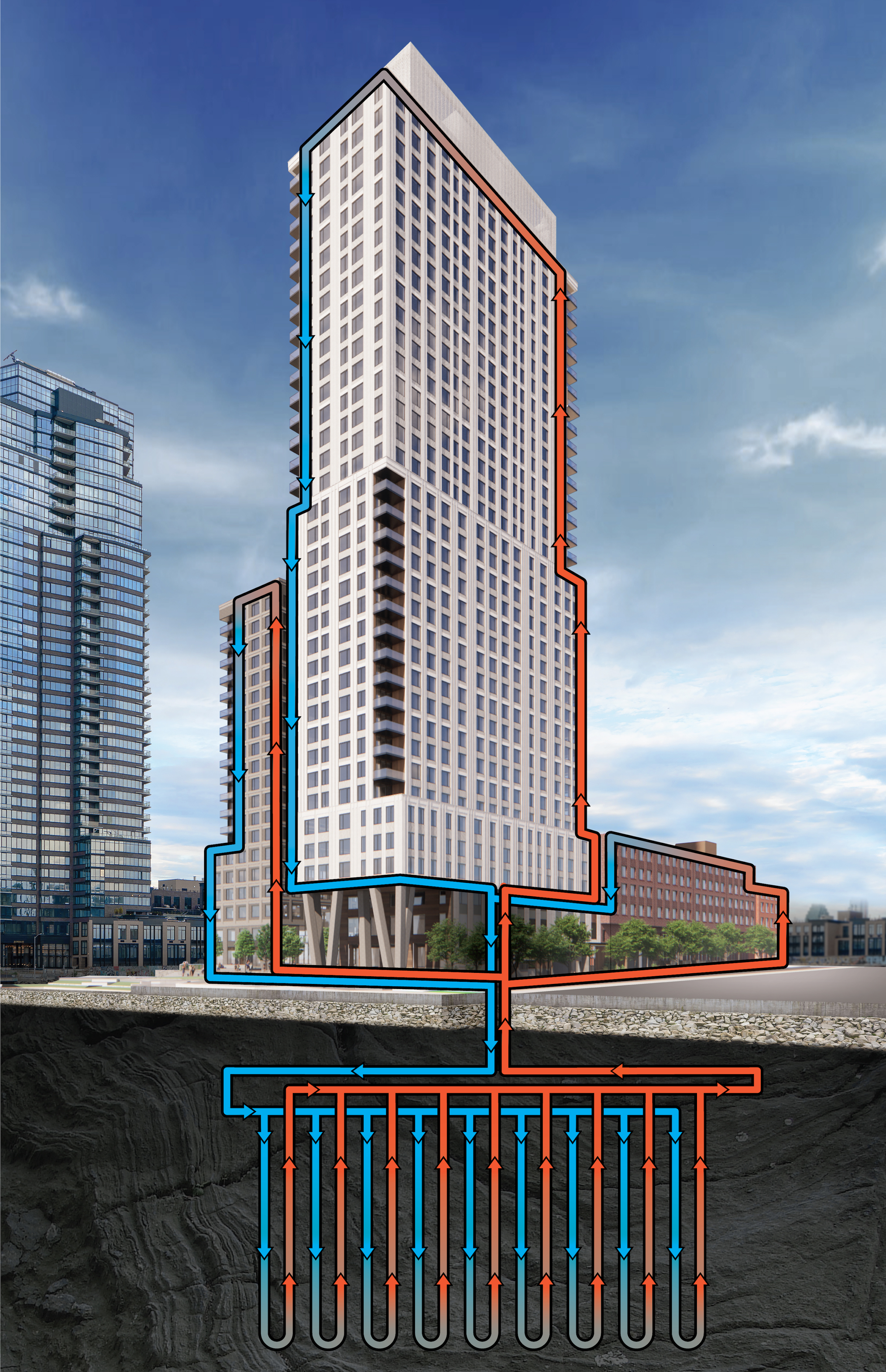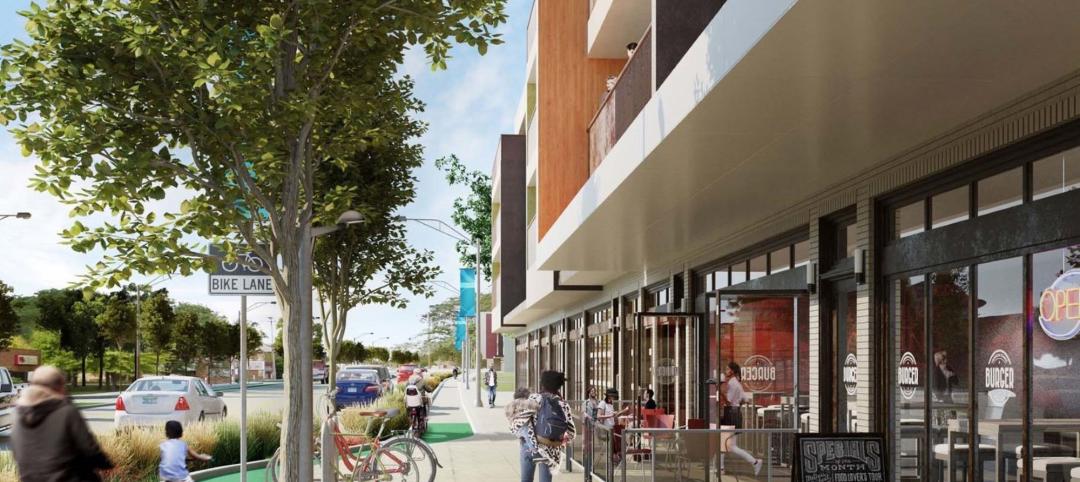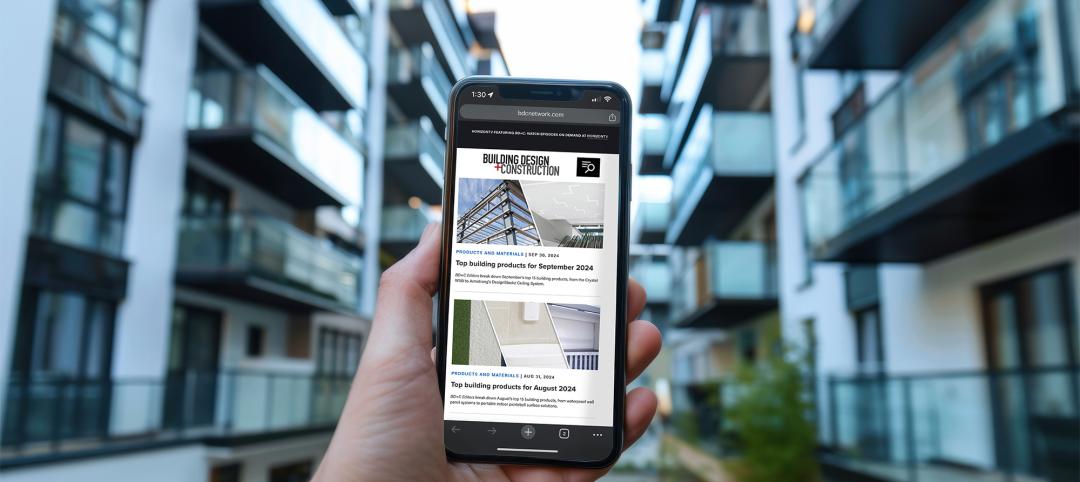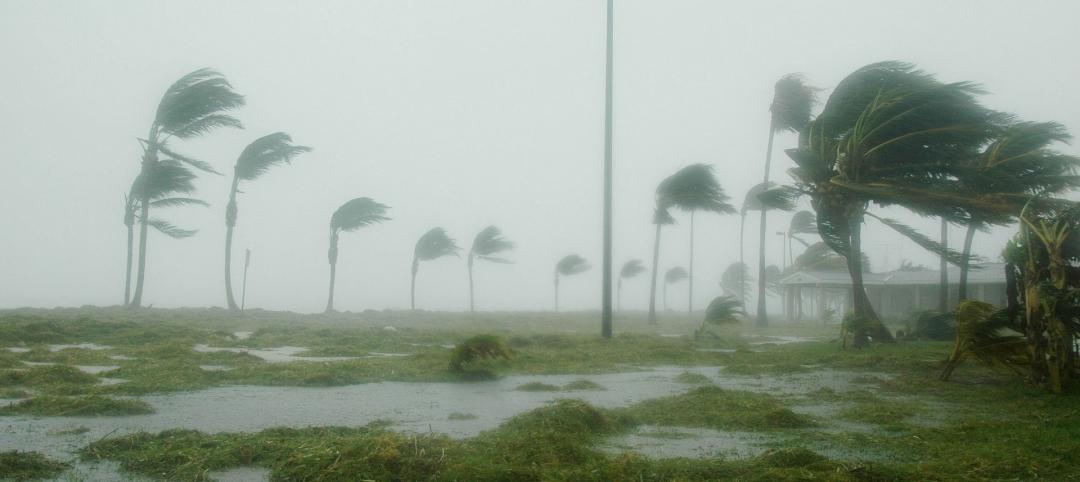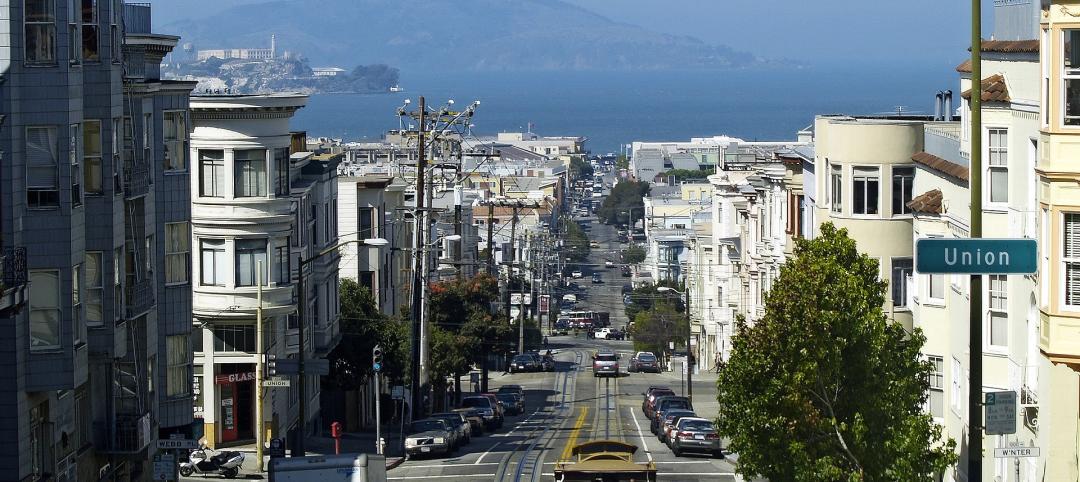Lendlease and joint venture partner Aware Super, one of Australia’s largest superannuation funds, today announced the acquisition of $4 million in support from the New York State Energy Research and Development Authority (NYSERDA) to build a geoexchange system at 1 Java Street in Brooklyn. Once completed, the all-electric property will be the largest residential project in New York State to use a geothermal heat exchange system, according to NYSERDA.
Situated on a 2.6-acre site, 1 Java Street will comprise five interconnected buildings, including 37-story and 20-story towers. Based on square footage, building height, the 834 residential units and number of boreholes, the geothermal system will be the largest multifamily project in New York State. It is believed to be the largest high-rise residential geoexchange system in the country.
The $4 million in funding was obtained through a competitive grant from NYSERDA’s Community Heat Pump Systems Pilot Program. The project—which has received support by local elected officials and the North Brooklyn Neighbors community planning organization—included a feasibility analysis, design work and the currently-underway installation of a community heat pump system, also known as a thermal energy network.
“1 Java Street presents us with the opportunity to establish a pioneering model for geothermal energy, aligning with New York’s ambitious climate goals, as well as our global targets of absolute zero carbon by 2040,” said Scott Walsh, Project Director, New York Development for Lendlease. “Our decision to use geothermal was driven not only by the environmental benefits and cost savings, but also enhanced marketability upon completion.”
NYSERDA Director of Clean Heating and Cooling Donovan Gordon said: “Community thermal networks are an important step in scaling building electrification and helping more residents benefit from clean energy infrastructure that can lead to long-term energy savings. Our support for this innovative project using the latest in clean heating and cooling technology will help us meet New York State’s climate and clean energy goals while reducing emissions in Brooklyn.”
Once completed, the geothermal system at 1 Java Street will reduce annual carbon emissions from heating and cooling by 53% compared with typical residential systems. As an all-electric building, 1 Java Street will also avoid carbon emissions related to the use of natural gas.
The on-site geothermal and all-electric systems of 1 Java Street ensure the project will meet or exceed Local Law 97, New York’s decarbonization legislation, and align with Mission Zero, Lendlease’s industry-leading initiative to reach absolute zero carbon—extending to its supply chain—by 2040. 1 Java Street will also target a range of sustainability initiatives including LEED Gold, Fitwel and Waterfront Edge Design Guidelines certification.
Slated for completion in late 2025, 1 Java Street is the sixth project developed and operated as part of the Aware Super and Lendlease joint venture Americas multifamily portfolio, which achieved net zero carbon in 2021. The joint venture’s stabilized assets were also recently recognized by GRESB as Regional Sector Leader for superior ESG performance.
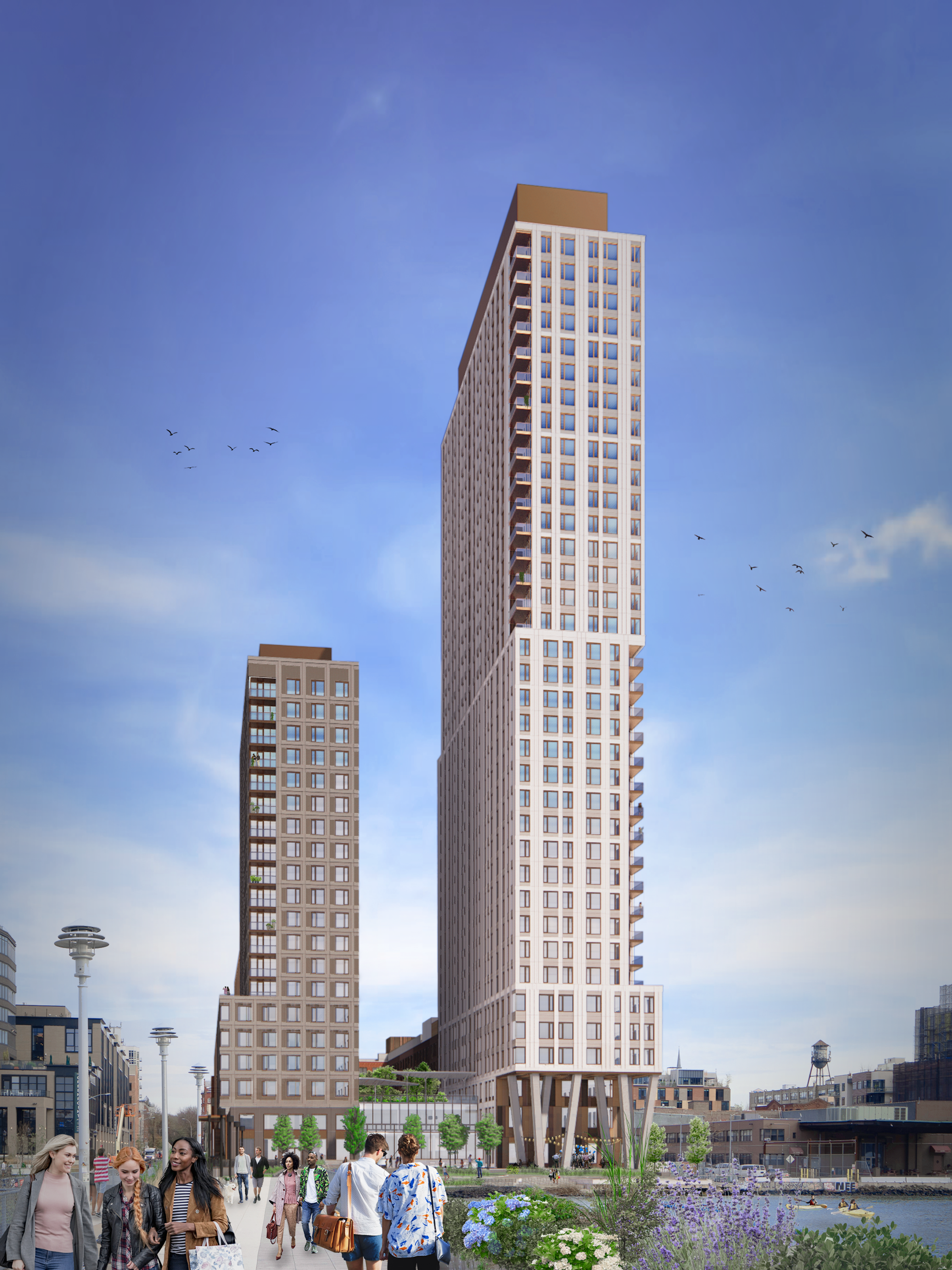
“We’re excited to celebrate the geothermal project that 1 Java Street is delivering for our property portfolio," said Alek Misev, Aware Super's Senior Portfolio Manager. "The sustainable benefits to be generated from New York City’s largest residential geothermal project will not only demand less energy from the grid at peak times, but also reduce carbon emissions, both of which are expected to uplift the value of this asset.”
Thirty percent of 1 Java Street's residential units have been designated as affordable housing under the Affordable New York Housing Program. In addition, over 13,000 square feet of space at the ground floor will be activated with retail. The property will also encompass a reimagined, 18,000-square-foot public waterfront esplanade that connects to the India Street Pier, which is served by the East River Ferry.
Overview of 1 Java Street’s Geothermal System
The geothermal system at 1 Java Street is a vertical closed loop system with underground pipes that circulate a water solution to be heated or cooled by the earth; a heat pump will utilize that temperature differential to help heat or cool the building, reducing the need for utility power. In the winter, when the underground temperature exceeds the surface air temperature, the water solution is used to transfer heat from the ground to building interiors. The process is reversed in the summer, when heat from the building is released underground using the same system.
1 Java Street benefits from its 2.6-acre, full-block location, allowing for the drilling of 320 boreholes. As a closed loop system requires no future access or maintenance, 1 Java Street’s borefield is located beneath the building. The site’s underground geology, which is largely composed of bedrock, provides an ideal medium for efficient thermal exchange.
Compared to conventional technologies, closed loop geothermal systems are more energy efficient and emit fewer carbon emissions. The geothermal system designed for 1 Java Street will account for 1,050 fewer metric tons of CO2 equivalent emissions than if the building used a traditional boiler/tower system. This is equivalent to planting over 5,200 trees.
The geothermal system will provide all the space heating, water heating and cooling for the project. In addition, 1 Java Street will be fully electric, with all cooking, clothes drying and other functions performed by electric appliances and building systems. This means the property will comply with New York City’s Local Law 154 – the city’s legislation that mandates most new buildings over seven stories be fully electric by 2027.
More about the 1 Java Street development by Lendlease
Developed by Lendlease, 1 Java Street is a sustainable, urban regeneration development along the Greenpoint waterfront in Brooklyn, New York. Scheduled for completion in late 2025, the project will comprise 834 rental units, 30% of which have been designated as affordable housing under the Affordable New York Housing Program. The all-electric property will utilize a vertical closed-loop geoexchange system, making it the largest geothermal residential development in New York State.
Designed by Marvel, 1 Java Street will be comprised of five interconnected buildings, including a 37-story and a 20-story tower. The property will feature nearly 13,000 square feet of retail space, as well as an 18,000-square-foot public waterfront esplanade connecting to the India Street Pier, which is served by the East River Ferry. Targeting LEED Gold certification and designed to meet or exceed Local Law 154, New York City’s legislation that mandates new construction to be all-electric, and Local Law 97, New York City’s decarbonization legislation, 1 Java Street aligns with Mission Zero, Lendlease’s industry-leading initiative to reach absolute zero carbon by 2040.
Related Stories
MFPRO+ New Projects | Oct 30, 2024
BIG’s One High Line finally reaches completion in New York City’s West Chelsea neighborhood
One High Line, a luxury residential project spanning a full city block in New York’s West Chelsea neighborhood, reached completion this summer following years of delays related to investor lawsuits.
MFPRO+ New Projects | Oct 30, 2024
Luxury waterfront tower in Brooklyn features East River and Manhattan skyline views
Leasing recently began for The Dupont, a 41-story luxury rental property along the Brooklyn, N.Y., waterfront. Located within the 22-acre Greenpoint Landing, where it overlooks the newly constructed Newtown Barge Park, the high-rise features East River and Manhattan skyline views along with 20,000 sf of indoor and outdoor communal space.
Multifamily Housing | Oct 28, 2024
A case for mid-rise: How multifamily housing can reshape our cities
Often referred to as “five-over-ones,” the mid-rise apartment type is typically comprised of five stories of apartments on top of a concrete “podium” of ground-floor retail. The main criticism of the “five-over-one” is that they are often too predictable.
Adaptive Reuse | Oct 22, 2024
Adaptive reuse project transforms 1840s-era mill building into rental housing
A recently opened multifamily property in Lawrence, Mass., is an adaptive reuse of an 1840s-era mill building. Stone Mill Lofts is one of the first all-electric mixed-income multifamily properties in Massachusetts. The all-electric building meets ambitious modern energy codes and stringent National Park Service historic preservation guidelines.
MFPRO+ News | Oct 22, 2024
Project financing tempers robust demand for multifamily housing
AEC Giants with multifamily practices report that the sector has been struggling over the past year, despite the high demand for housing, especially affordable products.
Products and Materials | Oct 17, 2024
5 multifamily tech products for your next project
Multifamily housing and technological upgrades go hand-in-hand. From the rise in electric vehicle charging needs to the sophistication of smart home accessories, tech products are abound in the multifamily space.
Codes and Standards | Oct 16, 2024
North Carolina’s code policies likely worsened damage caused by Hurricane Helene
The North Carolina Legislature’s rejection of building code updates likely worsened the damage caused by Hurricane Helene, code experts say. Over the past 15 years, lawmakers rejected limits on construction on steep slopes, which might have reduced the number of homes destroyed by landslides.
MFPRO+ News | Oct 16, 2024
One-third of young adults say hurricanes like Helene and Milton will impact where they choose to live
Nearly one-third of U.S. residents between 18 and 34 years old say they are reconsidering where they want to move after seeing the damage wrought by Hurricane Helene, according to a Redfin report. About 15% of those over age 35 echoed their younger cohort’s sentiment.
Student Housing | Oct 9, 2024
University of Maryland begins work on $148 million graduate student housing development
The University of Maryland, in partnership with Campus Apartments and Mosaic Development Partners, has broken ground on a $148.75 million graduate student housing project on the university’s flagship College Park campus. The project will add 741 beds in 465 fully furnished apartments.
MFPRO+ News | Oct 9, 2024
San Francisco unveils guidelines to streamline office-to-residential conversions
The San Francisco Department of Building Inspection announced a series of new building code guidelines clarifying adaptive reuse code provisions and exceptions for converting office-to-residential buildings. Developed in response to the Commercial to Residential Adaptive Reuse program established in July 2023, the guidelines aim to increase the viability of converting underutilized office buildings into housing by reducing regulatory barriers in specific zoning districts downtown.


